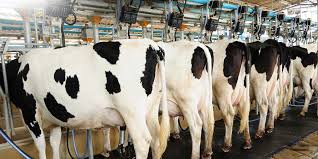The Rajasthan Gaushala Act, 1960(Act No. 24 of 1960)[Received the assent of the President on the 9th day of July, 1960]AnActto provide for better management, control and development of Gaushalas in thestate of Rajasthan.Be it enacted by the Rajasthan State Legislature in the Eleventh Year of theRepublic of India as follows:- 1. Short title, extent and commencement – (1) This Act may be called the Rajasthan Gaushala Act, 1960.(2) It extends to the whole of the State of Rajasthan.(3) It shall come into force on such date as the State Government may, bynotification in the official Gazette, appoint.2. Definitions – In this Act, unless the subject or context otherwise requires,-(a) “Cattle” includes any domestic animal of the bovine species;(b) “Director “means the Director of Animal Husbandry, Rajasthan, andincludes any officer appointed by the State Government to perform thefunctions of the Director under this Act;(c) “Federation’” means the Federation referred to in section 3;(d) “Gaushala” means a charitable institution established for the purpose ofkeeping,breeding,rearing and maintaining cattle or for the purpose ofreception , protection and treatment of infirm, aged or diseased cattleand includes a Pinjarpole or a Gosadan where such cattle are kept ;(e) “Gaushala Development Officer “means the officer appointed as such bythe State Government;(f) “Registrar” means the Registrar of Gaushalas appointed under section 4,and includes an Assistant Registrar while performing the functions of theRegistrar under this Act; The Rajasthan Gaushala Act , 1960(g) “Regulation” means a regulation made by the Director under section 14;(h) “Trustee” means a person or a body of persons, by whateverdesignation known, in whom the administration of a Gaushala is vestedand includes any person who is liable as if he were a trustee.3. Establishment of the Federation:-(1) As soon as may be possible , but not later than one year , after this Actcomes into force, there shall be established in the State of Rajasthan aFederation to be called “the Rajasthan State Gaushala Federation”.(2) The Federation shall consist of the prescribed number of memberselected by the trustees of the Gaushalas of the State in the prescribedmanner at a meeting specially held for the purpose.(3) Until the establishment of the Federation under this Section, theRajasthan Pinjarapole Gaushala a fedration Jaipur which has beenregistered under the Societies Registration Act, 1860 (Central Act XXI of1860 ) , as adapted to Rajasthan, shall be the Federation for thepurposes of this Act .4. Office of the Registrar and his staff –(1) The Gaushala Development Officer shall, by virtue of his office, be theRegistrar of Gaushalas.(2) Whenever necessary, the State Government may appoint an AssistantRegistrar and such other staff on such salary, allowances and otherconditions of service as it may determine.5. Trustees to apply for registration of and to furnish particulars relating toGaushalas(1) The trustee of every Gaushala shall, in the case of –(a) a Gaushala established before the commencement of this Act , within three months of such commencement , and(b) a Gaushala established after the commencement of this Act , with inthree months of such establishment,(2) The Registrar may, for reasons to be recorded in writing, extend theperiod for submitting such application and furnishing such statement.(3) Upon receipt of an application under sub section (1) the Registrar shallmake such inquiry as he may deem necessary and may, if satisfied asto the correctness of the particulars furnished and the genuineness ofthe application , register the Gaushala in the register maintained undersection 6 and issue a certificate of registration in the prescribed form.6. Register of GaushalasThe Registrar shall maintain a register of Gaushalas in such form andcontaining such particulars as may be prescribed,7. Register of Registrar to hold inquiry.-[1] The Registrar may at any time, either of his own motion or on theapplication of any person claiming to have an interest in the Gaushala orwhen required to do so by the Director or by the Federation, hold aninquiry to ascertain-{a} if the Gaushala is a Gaushala to which this Act applies;{b} the details of the property appertaining to such Gaushala;{c} the name and address of the trustee of such Gaushala;{d} the mode of succession of the office of the trustee of such Gaushala;{e} the income and expenditure of such Gaushala.[2] In every inquiry under this section the Registrar shall cause notice ofsuch inquiry to be served on the trustee of the Gaushala and permit himto appear in person or through an agent duly authorized in writing.[3] On the conclusion of the inquiry the Registrar may pass such order ashe may deem fit as to the matters to which inquiry relates.8. Trustee to furnish annual statement of changes in the particulars ofGaushala-[1] After the registration of a Gaushala under section 5, the trustee thereofshall submit to the Registrar a statement every year in the month ofJune in the prescribed form and manner, showing changes in theparticulars of the Gaushala which may have occurred during thepreceding financial year.(2) The Registrar may, for reasons to be recorded, extend the period for thesubmission of the annual statement.(3) The Registrar may, after such inquiry as he may deem fit, incorporatethe changes in the register of Gaushalas. 9. Maintenance of accounts and their audit-(1) The accounts of every Gaushala which has been registered undersection 5 shall be properly maintained and balanced each year. Theaccounts shall be audited annually by a person or persons approved bythe State Government in this behalf. The auditor shall furnish copies ofhis audit note to the trustee of the Gaushala and to the Registrar withinfour months of the end of the accounting year or within such furthertime as the Registrar may, for reasons to be recorded in writing, grant.(2) Every auditor acting under sub-section(1) shall have access to theaccounts and to all books, vouchers and other documents and recordsin the possession or under the control of the trustee.(3) Within six months of the end of the year for which the accounts arebalanced, or within such further time as the Registrar may, for reasonsto be recorded in writing, grant, the trustee of every Gaushala shallfurnish to the Registrar a statement of the
